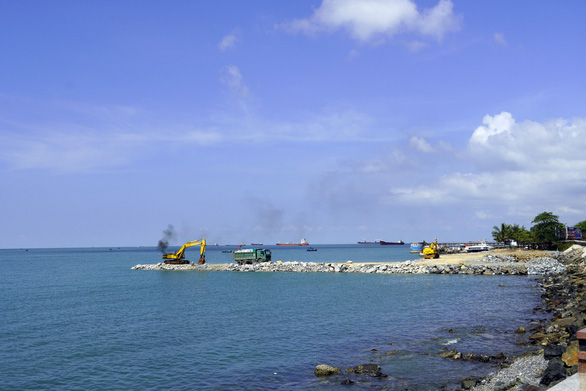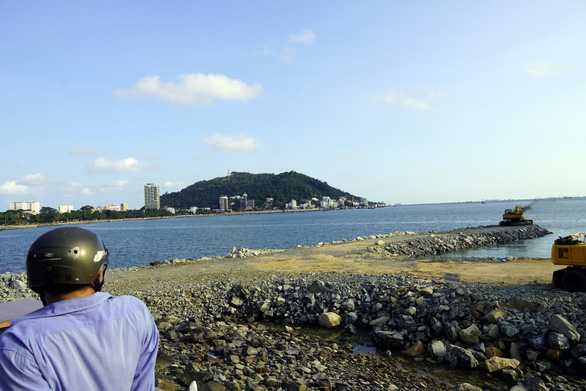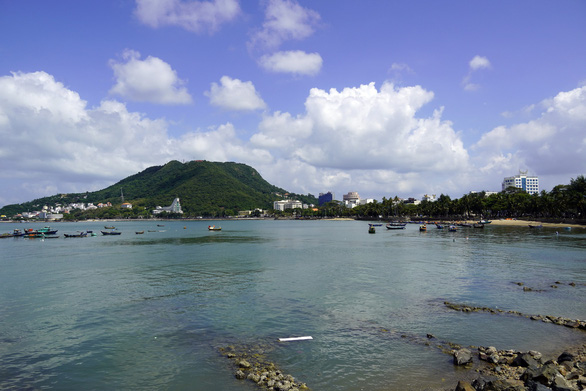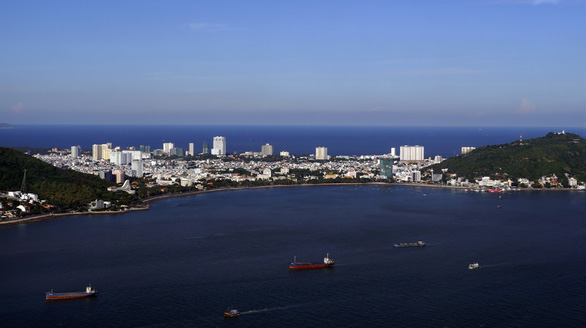Land reclamation at a popular beach in the southern Vietnamese province of Ba Ria-Vung Tau, initiated to prepare for the construction of a US$50 million aquarium complex, has been halted to review its impact on the surrounding environment.
Nguyen Thanh Long, chairman of the provincial People’s Committee, signed a decision on Tuesday to cease work on the Hon Nguu Aquarium project.
The administration asked the provincial Department of Construction to work with the project’s developer, Vung Tau Cable Car Tourism JSC (VCCT), to reevaluate the entire project and its impact on surrounding areas, the environment, and local tourism.
|
|
| A resident looks at the site of land reclamation for the Hon Nguu Aquarium project in Vung Tau City, Vietnam. Photo: Dong Ha / Tuoi Tre |
The Hon Nguu aquarium complex is planned to be built at the Front Beach, which runs adjacent to Tran Phu Street in Vung Tau City, a popular beach destination in southern Vietnam.
The project will cover an area of 6.7 hectares, including a three-hectare aquarium, a cable car station, and a 22-story five-star hotel.
The estimated capital investment is about $50 million, including $15-20 million which will go toward the project’s first phase, which involves reclaiming nearly 16,000 square meters of land from the sea.
|
|
| The Front Beach in Vung Tau City, located in Ba Ria-Vung Tau Province. Photo: Dong Ha / Tuoi Tre |
As the project has drawn objections from local residents who fear it may block the view of the sea at one of the city’s most popular beaches, authorities in Vung Tau have asked the provincial administration to review the project and garner feedback from experts and citizens.
A probe by Tuoi Tre (Youth) newspaper showed that the project’s environmental impact assessment (EIA) report does not provide a thorough assessment of changes to the water flow or erosion caused by the land reclamation.
The document only highlighted dust and noise as the biggest impacts of the land reclamation on the surrounding environment.
|
|
| The Front Beach in Vung Tau City, located in Ba Ria-Vung Tau Province. Photo: Dong Ha / Tuoi Tre |
Despite approving the report in January, the Ba Ria-Vung Tau administration did require the developer to monitor land erosion and sedimentation in the area and make a report once every six months.
According to Dr. Vu Ngoc Long, former head of the Southern Institute of Ecology, evaluation of water flow changes and erosion is the most important information to be included in an EIA report of any land reclamation project.
Other factors including high tides, climate change, and rising sea level, along with corresponding solutions to each problem, should also be taken into consideration when preparing the report, Dr. Long continued.
Like us on Facebook or follow us on Twitter to get the latest news about Vietnam!
























































